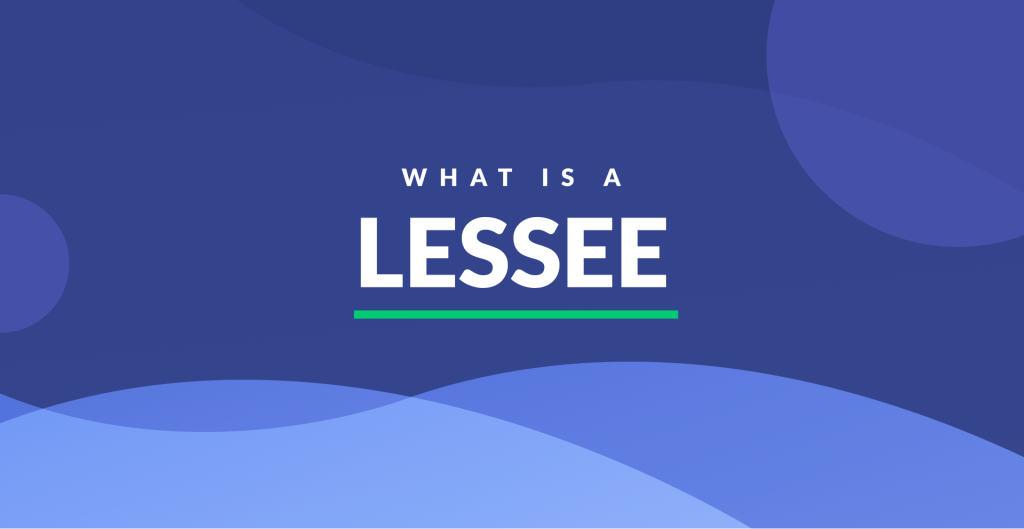The real estate leasing market in the USA has developed over 5 years. From 2018 to 2023, the market has grown by an average of 2.0%. Moreover, in 2023, the real estate renting and leasing market generated a revenue of $1.4 trillion. In 2024, more and more individuals and firms are opting for leasing property instead of spending a huge sum of money to buy one.
In the leasing market, there is an involvement of two parties, i.e., the lessor and the lessee. Both the parties have different rights, responsibilities, and obligations to fulfill. Before entering into the leasing arrangement, individuals must compare the lessor vs. lessee. This gives a better understanding of the leasing arrangement and the roles and responsibilities of each party. Let’s start with “who is a lessor?”
Who is a Lessor?

A lessor is the individual who owns the property and entitles another individual or firm (the lessee) the right to use the property through a lease agreement. This agreement includes terms, conditions, rent, lease duration, mode of payments, and transaction details. The lessor always remains the owner of the property. However, the lessee possesses the right to use the property.
In the lease arrangement, the lessee pays the lessor a monthly rent or fee in exchange for using the property. This not only allows the lessor to retain ownership but also generates a steady, continuous monthly income without the need to sell the property. Moreover, the lessor can reclaim the property after the end of the Lease Agreement.
Now let us see who is a lessee and how is the lease arrangement beneficial to them.
Who is a Lessee?

A lessee is an individual or firm that leases the property from the lessor in exchange for certain fees. A lessee signs a lease agreement with the lessor through which they obtain the temporary right to use the property.
The lessee needs to take care of the property, maintain it, adhere to the guidelines of using the property, and comply with the lease terms and conditions. This arrangement enables the lessee to obtain property without buying or investing a huge amount in it. Moreover, the lessee needs to return the property to the lessor after the lease expires.
Both the lessor and lessee need to abide by the terms and conditions of the lease agreement and possess different rights and responsibilities. Let’s compare the lessor vs. lessee on different grounds and criteria.
Understanding the Key Differences: Lessor vs Lessee

Before entering the Leasing Market, a comparison between the lessor vs lessee is necessary. This is because both parties have different functions, rights, and obligations. For example, a lessor is the owner of the property, but in the leasing market, the legal right to use the property remains with the lessee. However, the lessee cannot make significant changes to the property without the consent of the lessor.
Now, let’s take a look at some other crucial aspects of lessor vs. lessee
1. Definition
Lessor:
The lessor is the party who owns the property. The property can be an apartment, office space, condo, or house. While the legal owner of the property is the lessor, the lessee has the right to use it for a definite period of time.
Lessee:
A lessee is an individual or firm who takes the property on lease from a lessor. The lessee should make rent or fee payments monthly, quarterly, half yearly or yearly to use the property.
2. Rights and Responsibilities
Lessor’s Rights and Responsibilities:
- The lessor holds legal title to the property throughout the lease period.
- Lease Agreement: The lessor drafts and forms a Lease Agreement that specifies the conditions governing the lease.
- Maintenance: Sometimes, depending on the lease agreement, the lessor maintains the property.Ownership:
- Payment Collection: As provided by the lease contract, the lessor receives fee or rent form the lessee periodically or in accordance with the agreed terms of the contract.
- Asset Repossession: If the lessee breaches the contract, the lessor has the right to regain possession of the property.
Lessee’s Rights and Responsibilities:
- Usage: The lessor has the right to use the property.
- Payments: The lessee should make lease payments to the lessor either monthly, quarterly or as provided by the lease agreement.
- Return of Property: When the lease agreement expires, the lessee has to give back the property to the lessor unless there is a provision that allows for its purchase or renewal.
3. Financial Implications
For the Lessor:
- Income Generation: Leasing leads to a constant generation of revenues from the lease receipts.
- Risk of Default: There is a risk in leasing the property in the event of non-payment of rent or fees by the lessee.
For the Lessee:
- Cost Efficiency: Leasing is generally cheaper than purchasing a property.
- Flexibility: the lesee is able to take benefit of the property without having to buy the property.
Ready to Lease: Partner with Citadel Property Management Corp. for a Better Understanding of Lessor or Lessee Rights
The lessor and lessee are two different parties in the leasing market. Both have their individual rights and duties to perform. The lessor has the right to receive continuous fees or rent from the lessee for the use of the property. At the same time, it is the lessor’s responsibility to handle property-related issues and allow the lessee to make certain changes to the property.
On the contrary, in the lease agreement, the lessee is responsible for taking care of the property, abiding by the lease terms and conditions, and making regular and timely payments to the lessor.
To find a property for leasing or to understand the rights, obligations, or roles of the lessor or lessee in a better way, you can partner with Citadel Property Mangement Corp. and enhance your leasing experience.
Frequently Asked Questions
1. Is there any maximum time period for leasing a property?
The maximum period for leasing a property is usually 99 years.
2. Can a lessee ask for an extension of the lease period from the lessor?
Yes, the lessee can ask for an extension of the lease period. If the lessor accepts the proposal, both parties can form a new lease or alter the existing lease’s terms and conditions to extend the lease period.
3. Can a lessor terminate the lease agreement with the lessee?
Yes, the lessor can terminate the lease agreement with the lessee on grounds of fraud, non-payment of fees, misuse of property, or potential damages to property.
4. Is it compulsory to pay the lease fee monthly to the lessor?
No, it is not compulsory to pay the lease fee monthly. The lessor and lessee can discuss and determine the terms and conditions of payments.
5. Can a lessee negotiate the lease terms with the lessor?
Yes, the lessee can negotiate the lease terms with the lessor.



